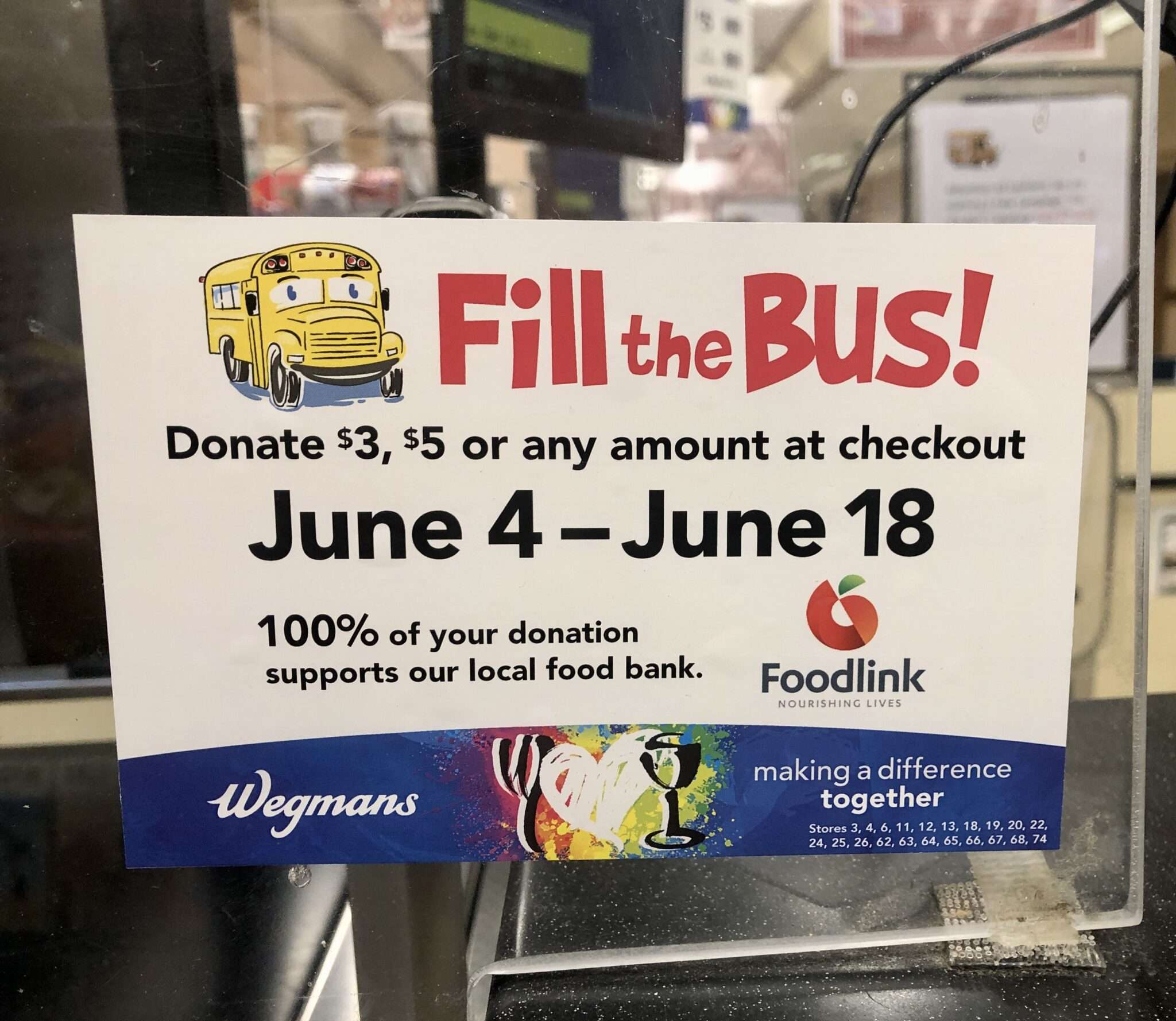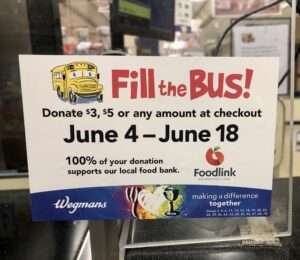Food Banking
As a regional food bank, Foodlink is responsible for the aggregation, storage and distribution of millions of pounds of purchased and donated food to nonprofit organizations that serve food-insecure individuals throughout a 10-county service area.
Food banks are membership-based organizations – typically with large distribution centers – that primarily provide food to a network of nonprofit partners. Foodlink, for example, has a membership network of hundreds of different partner organizations! These partners are primarily food pantries, community meal programs, and shelters. Food banks exist to serve as the hub of a local emergency food system: we help our members access free or low-cost food for those in need, network with other peer organizations doing similar work, and gain access to grant dollars for food, supplies, and equipment.
Foodlink’s network
Foodlink’s diverse membership network covers the counties of Allegany, Genesee, Livingston, Monroe, Ontario, Orleans, Seneca Wayne, Wyoming and Yates. We work with food pantries, community meal programs, and shelters in these counties to ensure that everyone has access to emergency food. We also provide food to hundreds of other nonprofit organizations, such as group homes, day cares and senior centers, helping them save vital dollars on their food budgets so resources can be redirected to other programmatic needs.
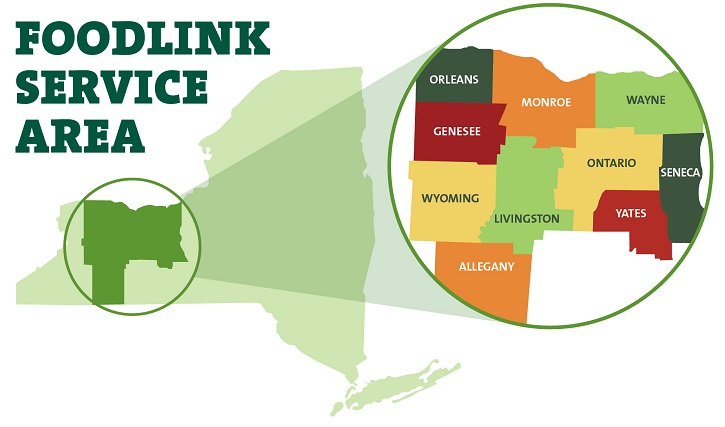
Agency Advisory Committee
The Agency Advisory Committee (AAC) comprises representatives from member agencies. The AAC reviews and advises on Foodlink policies and procedures, and assists with new initiatives and strategic plans. This group meets quarterly.
Carol Dodge, Salvation Army, Wellsville
Katrina Standish, Genesee/Orleans CAP
Molly Cummings, Foodlink Board
Deb MacLean, Geneseo Groveland
Dan Astuto, Mission Share
Robert Williams, AAC Chair, Open Door Mission
Charles Brown, Northside Church
Les Moore, Wellspring Church
Chris Ehlers, Seneca/Cayuga CAP
Shannon Brown, Wayne CAP
Lisa Barrett, Newark Food Closet
This group meets quarterly with Foodlink’s Member Services team.
Growing our School Pantry network
Well-nourished students have a better chance of success in both the classroom and life.
Initiatives like the BackPack Program aimed to support children in need of food assistance by providing discreet bags of nutritious, shelf-stable food they can easily prepare at home. However, recognizing the limitations of the BackPack Program, Foodlink has shifted toward school-based food pantries.
This transition is aligned with Foodlink’s overall mission and values, by prioritizing client choice and the engagement of the whole family. Moreover, this transition reflects a significant lesson from COVID; namely, schools are one of the most stable social-service organizations in any community.
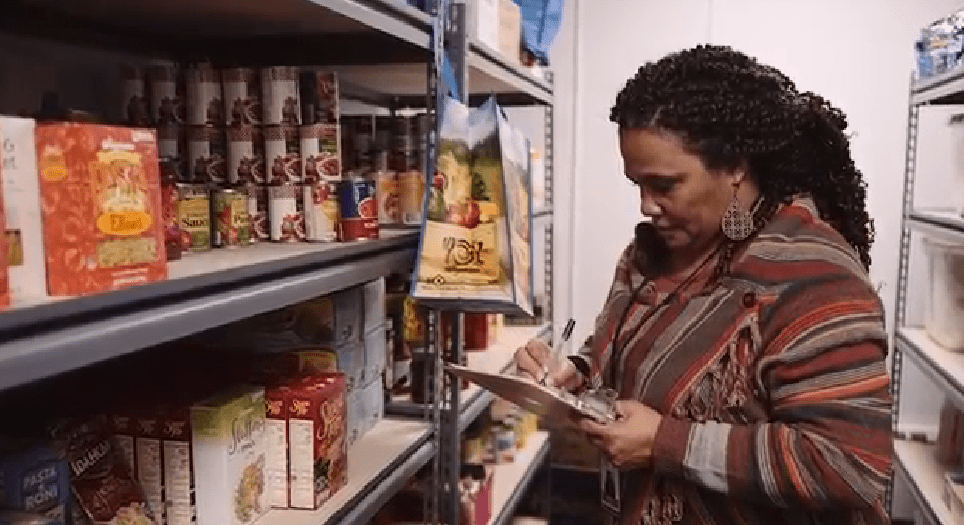
Our growing network of school pantries addresses some of the limitations of the BackPack Program in several key ways:
- Sustained Support: They provide a more sustainable solution by offering a consistent source of food throughout the school year.
- Whole family engagement: School pantries allow staff to engage the whole family with necessary food resources.
- Fresh and Varied Options: School pantries offer a broader range of food items for a balanced diet, which may include fresh and frozen foods depending on the capacity of the school.
- Flexibility and Choice: School pantries provide greater flexibility and promote client choice by allowing students and families to select food items that align with their dietary preferences.
- Cost Effective: Stocking a school pantry will save money by providing more food purchasing options like purchasing in bulk and serving larger communities. School pantries may be eligible for additional funding or grants by partnering with local food banks to assist with food purchasing, storage/refrigeration, and additional equipment.
Community Health Commitment
In addition to its role as the regional food bank, Foodlink carries the responsibility of a public health organization focused on leveraging the power of food to build healthier communities. Our daily work reflects our efforts to stem diet-related disease and its effects in our community.
To that end, Foodlink is committed to increasing our distribution of fresh, nutritious food and decreasing our distribution of unhealthy foods and beverages. Our Community Health Commitment (CHC), which includes The Healthy Choice nutrition ranking system, informs Foodlink staff, food bank members and their clients, donors, government programs, and the community at-large of this pledge and how we intend to carry it out.
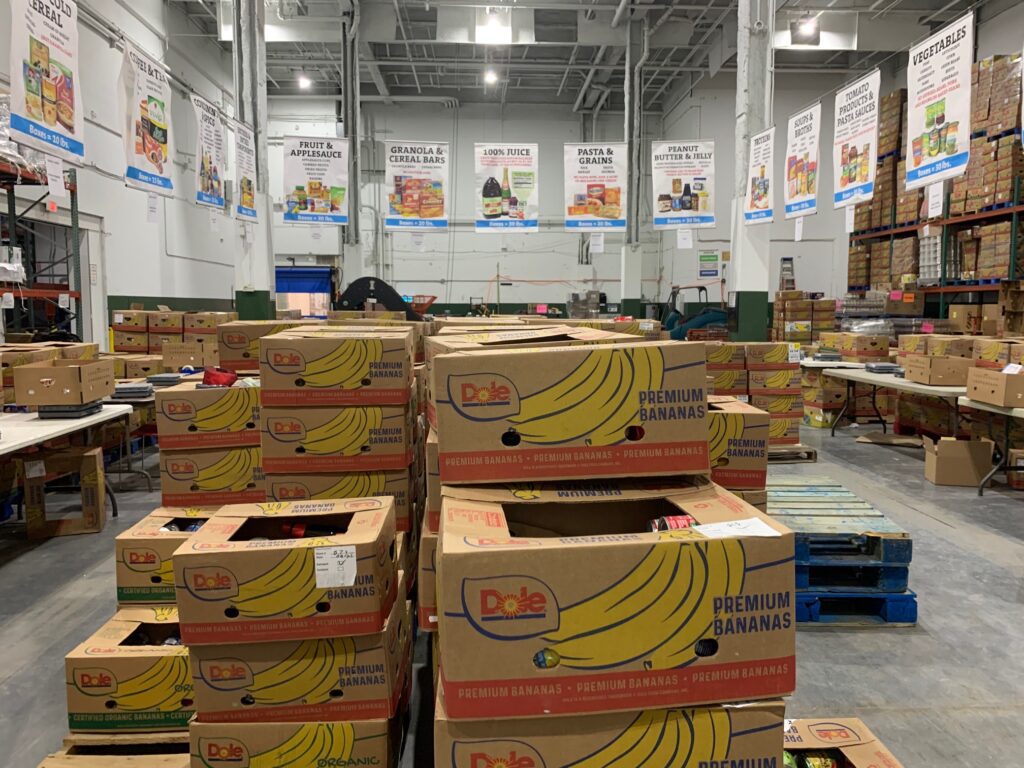
USDA Statement of Non-Discrimination
In accordance with federal civil rights law and U.S. Department of Agriculture (USDA) civil rights regulations and policies, this institution is prohibited from discriminating on the basis of race, color, national origin, sex (including gender identity and sexual orientation), disability, age, or reprisal or retaliation for prior civil rights activity.
Program information may be made available in languages other than English. Persons with disabilities who require alternative means of communication to obtain program information (e.g., Braille, large print, audiotape, American Sign Language), should contact the responsible state or local agency that administers the program or USDA’s TARGET Center at (202) 720-2600 (voice and TTY) or contact USDA through the Federal Relay Service at (800) 877-8339.
To file a program discrimination complaint, a Complainant should complete a Form AD-3027, USDA Program Discrimination Complaint Form from any USDA office, by calling (866) 632-9992, or by writing a letter addressed to USDA. The letter must contain the complainant’s name, address, telephone number, and a written description of the alleged discriminatory action in sufficient detail to inform the Assistant Secretary for Civil Rights (ASCR) about the nature and date of an alleged civil rights violation.
The completed AD-3027 form or letter must be submitted to USDA by:
- mail:
U.S. Department of Agriculture
Office of the Assistant Secretary for Civil Rights
1400 Independence Avenue, SW
Washington, D.C. 20250-9410; or - fax:
(833) 256-1665 or (202) 690-7442; or - email:
program.intake@usda.gov
This institution is an equal opportunity provider.
